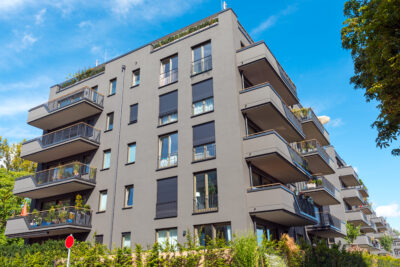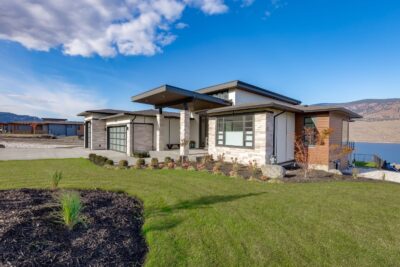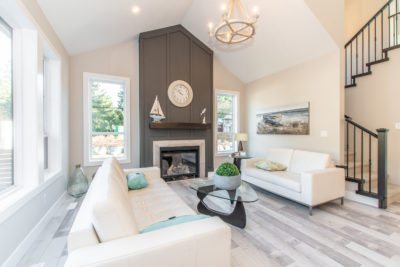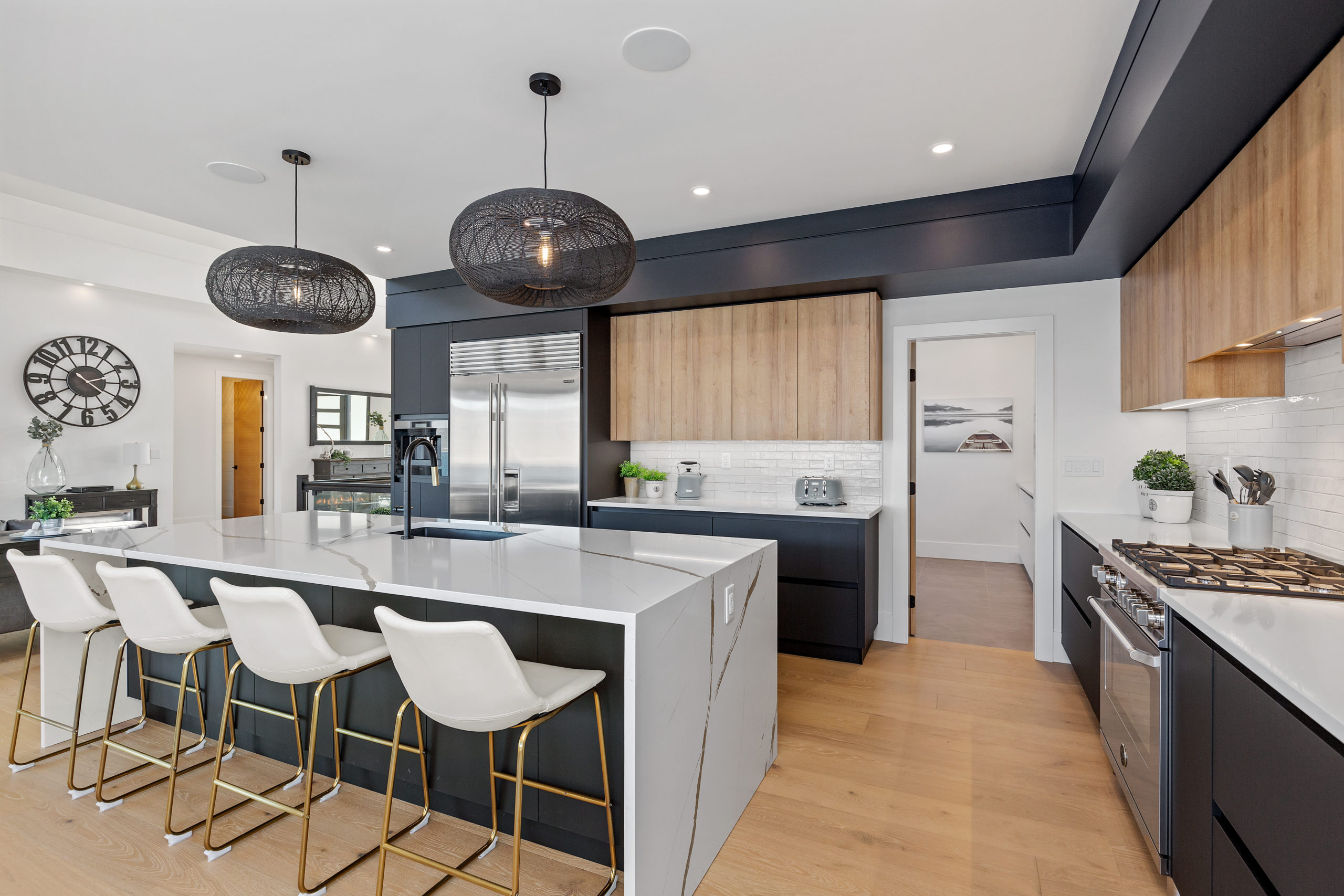
If you search ‘Vancouver custom home builders’ on Google, you’ll get back a long list of some of the best home builders in the Greater Vancouver area.
Pop quiz:
Aside from where they build homes, what do these Vancouver custom home builders have in common? Answer: They build properties covered by a B.C. new home warranty.
Theoretically, a home builder could sell a home without a warranty, but that would be a no-no.
How can homebuyers protect themselves, then, when building a custom home in and around Lower Mainland, B.C.?
Follow this guide that answers this and many other related questions. We’ll start by outlining the B.C. new home warranty program and how it protects homeowners.
What is the B.C. new home warranty offered by Vancouver custom home builders?
According to the Homeowner Protection Act or Regulations, all homes built in B.C. must come with new home warranty insurance.
The law applies to new homes whose construction began on or after July 1, 1999—in areas of the province that don’t require building permits—and for homes whose building permits were applied for on or after July 1, 1999.
There are exceptions to the rule which we’ll cover later in this article. In the meantime, if you’re looking for information on new home warranty exclusions, head to the Homeowner Protection Act website.
Which organisations are involved in B.C.’s new home warranty?
There are three main players in British Columbia new home consumer protection:
- Licensing and Consumer Services, a branch of BC Housing
They manage the Homeowner Protection Act and regulate Licensed Residential Builders, including Vancouver custom home builders, to make sure they offer warranty insurance on their properties as required by the Act.
- The Insurance Council of B.C.
Warranty providers can choose to work through an insurance broker. These brokers are licensed and investigated by, and accountable to, the Insurance Council of B.C.
- BC Financial Services Authority
The BC Financial Services Authority (BCFSA) is a provincial government agency that regulates insurance companies in B.C., including those that offer home warranty insurance. The BCFSA is responsible for determining whether or not a home warranty product offered by an insurance company is reputable.
Up next: a list of home warranty providers in B.C. and how they’re vetted by the BCFSA.
B.C. new home warranty insurance providers
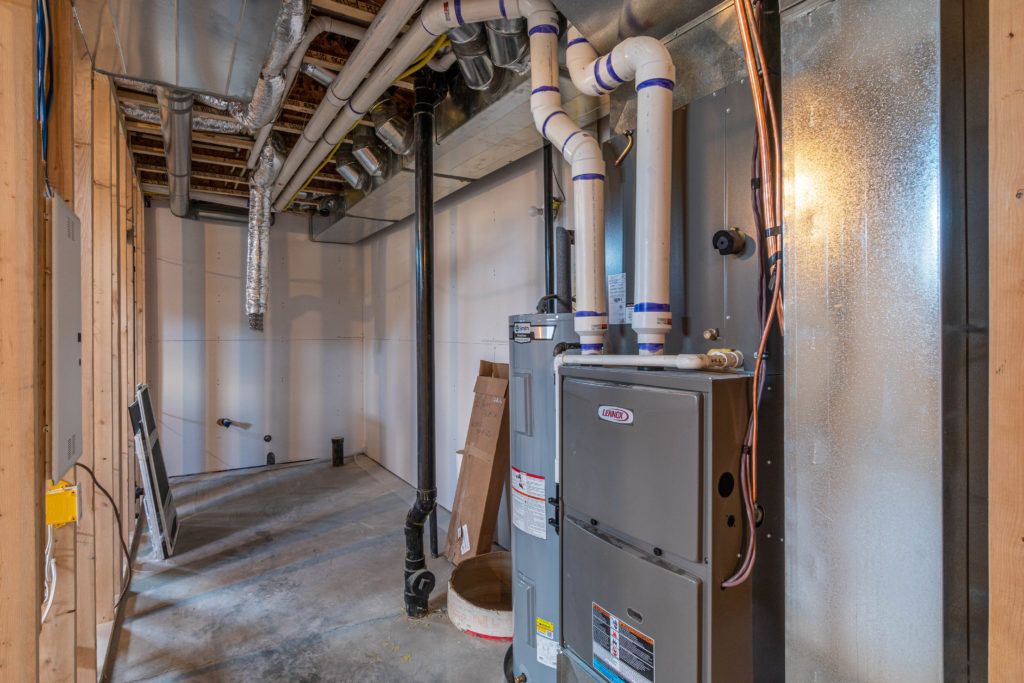
If you’re wondering how to figure out whether or not an insurance provider is offering quality coverage, look no further than the BCFSA.
Only companies that meet Homeowner Protection Act requirements and that are screened by the BCFSA are allowed to offer home warranty coverage to British Columbians.
BCFSA-authorized home warranty insurance companies include:
- National Home Warranty Group Inc., backed by Aviva Insurance Company of Canada.
- Pacific Home Warranty Insurance Service Inc., backed by Echelon General Insurance Company.
- WBI Home Warranty Ltd., backed by Intact Insurance Company.
- Pacific Home Warranty, backed by Trisura Guarantee Insurance Company.
- Canadian Home Warranty Protection Program (CHWPP), backed by The New Home Warranty Insurance (Canada) Corporation.
The last insurance company on the list, the CHWPP, is a popular choice. It’s been in the business for a long time and works in all four Western Canadian provinces.
We’ll quickly cover them in more detail in the next section.
The Canadian Home Warranty Protection Program (CHWPP)
The CHWPP is the leading home warranty provider in Western Canada. They’re also an advocacy, training, and consumer support organization that touches on every aspect of the residential home building industry in British Columbia.
Here are three facts about the CHWPP:
- They partner with hundreds of B.C.’s most reputable home builders, including Vancouver custom home builders, to ensure quality of service and craftsmanship across the province.
- Since 1974, they’ve provided comprehensive new home warranty coverage to over 100,000 homeowners in British Columbia, Alberta, Saskatchewan, and Manitoba.
- They offer homeowner insurance thanks to their underwriter, the New Home Warranty Insurance (Canada) Corporation (NHWICC).
As a BCFSA-authorised provider, the CHWPP must stick fast to B.C. building codes and standards.
In the following section, we’ll go over the law that governs these standards.
What is the Homeowner Protection Act and Regulations?
Remember earlier when we mentioned the B.C. Homeowner Protection Act & Regulations? According to it, all new homes built in the province have to come with mandatory warranty coverage.
This Act is the provincial law that governs homeowner protections against unethical homebuilders and poor workmanship.
Translation: if your new home needs repairs sooner than it should, the law protects you from having to pay for them yourself.
Even so, the Act does more than protect consumers. Read on to find out more about the Act.
What does the Homeowner Protection Act and Regulations do?
The role of the Act is twofold:
- To improve the quality of residential construction, including that offered by Greater Vancouver custom home builders, and
- To strengthen consumer protection for new home buyers.
Beyond these two things, the Act also indirectly influences home builder licensing, insurance provider monitoring, and industry education and research. It does this through the Licensing and Consumer Services Branch of BC Housing which is in charge of:
- Licensing residential builders, including Vancouver custom home builders and renovators,
- Keeping an eye on new home warranty insurance providers,
- Handling Owner Builder approvals (more on this later), and
- Conducting research and education related to the residential construction industry and its homebuyers.
Next, we’ll go over what types of properties are covered by the Act and Regulations and which aren’t—read on.
What’s covered by the B.C. Homeowner Protection Act & Regulations
What’s considered a ‘new home’ in B.C.? We curated a list of the property types built by Greater Vancouver new home builders covered by the Act. They include:
- Single-family homes,
- Multi-family homes,
- Duplexes, and
- Condominiums/strata
In all the above cases, the new home warranty stays attached to the building, not the owner. When an owner sells a property, warranty coverage moves to the new owner and continues until its original expiry date.
This makes sense when you think that insurance is meant to protect against defects caused by the original construction of a property.
A transfer of ownership wouldn’t change the start date on warranty protection. The warranty is valid until coverage expires.
Strata coverage by the Act and Regulations
For condominiums and other strata-titled homes, there are two home warranty insurance policies to keep track of:
- One on the home or unit itself, and
- One on the building’s common property.
The expiry dates on these two policies are often different. For example, coverage on the building’s common property starts when the first unit in the building is occupied.
If you’re the last to buy a condo in a building, you could very well find that some insurance coverage on common property has expired.
If you’re a B.C. new home buyer or owner, it’s important to understand the start dates, expiration dates, and exceptions of your home warranty.
What’s exempt from the B.C. Homeowner Protection Act & Regulations
Not all types of properties are covered under the Act. Here’s what’s not governed by it:
- Commercial property,
- Work camps,
- Dormitories,
- Care facilities,
- Hotels and motels,
- Manufactured homes, like mobile homes,
- Floating homes—B.C. is a water-bordering and water-filled province, after all—and
- Homes built on First Nations reserve land
The exception to the exception—there’s always one!—is that if any of the above types of properties are strata-titled, they’re considered a new home and need home warranty insurance.
All joking aside, there is another exemption to mention: owner-built homes. Coming up, we’ll cover what happens when the owner of a new residence has built it themselves.
B.C. Owner-Builder Authorisations
An owner builder is a person who’s approved by BC Housing to build their own new home. An owner-built home falls under an Owner Builder Authorization (OBA).
An OBA states that owner builders are subject to the Act and Regulations’ Statutory Protection Provisions, meaning that:
- They’re personally liable to future property owners for any construction defects that occur on the home for 10 years unless …
- They purchase home warranty insurance.
Under an OBA, authorised owner-builders:
- Are free from having to become a licensed home builder,
- Are exempt from having to purchase third-party home warranty insurance on the home—but remember: without insurance, they’re personally liable for defects for 10 years after the build.
- Must build or directly manage—in the form of, say, acting as the general contractor on the build—the construction of their new residence.
To find out more about warranties on the owner-built homes properties, check out the Homeowners Protection Act detailed here.
If you’re a buyer, make sure you understand whether or not the house you’re interested in purchasing was built by a licensed builder or a homeowner.
How does the B.C. new home warranty work?
Above and beyond coverage and exemptions, how exactly does the home warranty program work? We’ve included a summary of the details next.
When Greater Vancouver custom home builders construct a home, they’re responsible for making sure the property is insured. This takes three steps:
- The new home must be enrolled with a BCFSA-authorised provider warranty provider,
- Its warranty must meet legislated requirements, and
- The home has to be registered with the province’s New Homes Registry.
When does coverage begin when you work with Vancouver custom home builders?
If you’re a new home owner or buyer, we recommend you prioritize understanding your property’s insurance coverage. The main reason: to know when coverage expires.
Coverage provided by Greater Vancouver custom home builders varies depending on the type of property.
For single-family detached dwellings (non-strata homes):
- Developer-built, spec or model home (built on land owned by the builder or developer):
- The date of first occupancy, or
- The day when legal title is transferred to the first owner, whichever comes first.
- Custom homes (built on land owned by the homeowner):
- The date of first occupancy,
- The date listed on the occupancy permit, or
- The day when the home is complete and ready for occupancy, whichever comes first.
For strata dwellings (e.g., condominiums):
- Individual units (e.g., condos):
- The date of first occupancy, or
- The day when legal title is transferred to the first owner, whichever comes first.
- Building common property:
- The date that the first unit in the strata building is occupied, or
- The day when legal title is transferred to the first unit owner in the building, whichever comes first.
Is a new home warranty mandatory in B.C.?
We mentioned this earlier but it’s worth repeating: All new B.C. homes built and permitted on or after July 1, 1999, must come with third-party warranty coverage.
British Columbia is one of only four Canadian provinces that require builders to offer consumer protection. The other three are:
- Alberta
- Ontario
- Quebec
In the remaining provinces, it’s the builder who gets to decide whether or not to offer a warranty.
The caveat: if a developer wants to become and stay a member of the Canadian Home Builders’ Association, they have to offer consumer protection.
What are the legal must-haves for B.C. new home warranty insurance? Follow along to find out.
What’s covered under the new home warranty offered by Vancouver custom home builders?
B.C.’s Homeowner Protection Act and Regulations is clear: new homes must be protected by a minimum amount of third-party insurance coverage.
A reputable home builder will automatically offer this level of protection, an amount that runs out over time. The good news: it’s as easy as 1-2-5-10 to remember. Find out next what we mean.
1-2-5-10 Home Warranty Coverage
New residential B.C. properties must come with mandatory coverage for a minimum of one to ten years depending on the defect. This insurance coverage goes by several names, including:
- The Third-Party Warranty,
- The Mandatory Warranty, And
- The 2-5-10 Warranty
For the sake of this article, we’ll use the name 2-5-10 Warranty—it sounds more fun.
What’s included in the 2-5-10 Warranty
The 2-5-10 Warranty gets its name from the post-build time frame that covers a particular part of a home. Specifically, the warranty breaks down this way:
| Timeframe | Warranty Type | What’s Covered |
| 2-Year | Labour and Materials & Delivery and Distribution Systems | For 12 months: Covers materials and labour defects for all new homes except for the common property of a strata corporation. For 15 months: Covers all aforementioned things for strata corporation common property. For 24 months: Covers defects in materials and labour related to electrical, plumbing, heating, ventilation, and air conditioning, as well as for the exterior cladding, caulking, windows and doors for all new homes, including strata common property. |
| 5-Year | Building Envelope Protection | Covers components that separate the indoors from the outdoors, including the exterior walls, foundation, roof, windows and doors. Insurance covers any defects caused by unintended water penetration that causes, or might cause, damage to the home’s interior. |
| 10-Year | Major Structural Defects | Covers material and labour defects from the failure of a load-bearing part of the new home—e.g., the foundationCovers structural damage that negatively affects the homeowner’s use of the property—i.e., they can’t live in part or all of the home until the defect is fixed. |
For more details on what’s covered and what’s not, we encourage you to read the B.C. Home Warranty Insurance Guide.
How much does the B.C. new home warranty cost and how much does it cover?
The cost of B.C. new home warranty insurance is included in the price of the new property. Home buyers don’t have to worry about paying more when they purchase or build a new residence.
As for what dollar amount is covered by new home insurance, here’s a simple breakdown of the amounts:
For single-family detached dwellings (non-strata homes):
- The first owner’s purchase price or $200,000, whichever is less
For strata dwellings (e.g., condominiums):
- The first owner’s unit purchase price or $100,000, whichever is less.
- Note that it’s the first owner’s purchase price that counts. If you bought your property after them and paid more, you don’t have the right to claim for more.
- For strata common property: $100,000 x the number of dwelling units in the building or $2.5 million per building, whichever is less.
- For example, if there are 180 units in the building, that maximum amount the strata corporation could claim on a common property defect under the warranty is not 180 x $100,000, or $18 million; it’s $2.5 million.
Other types of protection offered by Vancouver custom home builders
Now that we’ve covered the 2-5-10 Warranty, let’s talk about the other types of protection home buyers can expect. These include:
- Builder Warranties
- Manufacturers’ Warranties
Builder Warranties
Some Greater Vancouver custom home builders may offer extra warranty coverage as a part of the deal.
Keep in mind additional insurance isn’t government regulated. It’s up to you, the consumer, to get any additional warranty promises in writing and to enforce them should it come down to having to file a claim.
Manufacturers’ Warranties
Many building materials (e.g., flooring, windows, doors, cabinets, shingles, plumbing and lighting fixtures) come with their own manufacturer warranty. This coverage may last longer than 2-5-10 Warranty coverage.
Ask your builder for copies of manufacturer’s warranties at the time of closing. Ensure warranties have been transferred to your name as many arrive in the name of the builder.
How condo owners are protected under the B.C. new home warranty
As we’ve mentioned, buyers who purchase a unit under a strata corporation are covered under the Act.
If you’re looking to buy a condo, we recommend you familiarise yourself with:
- The warranty start date for the specific unit you’re interested in buying, and
- The warranty start date for the building’s common property
- Remember that common property warranty start dates take effect when the first unit in the building is occupied.
- If you’re not the first to occupy your condo, the warranty clock will have already started by the time you’ve moved in.
When looking to buy a condo, we recommend you get a property Building Assessment Report from the strata corporation. Make this a condition of the purchase.
Familiarise yourself with common property and unit warranty start dates. Remove sale conditions only once you feel comfortable with what you read in the report.
How to register your B.C. new home warranty
In British Columbia, it’s the home builder’s responsibility to register a new property for its warranty. It is not the homeowner’s responsibility to register their property unless they’re an owner-builder.
New home registration needs to happen before construction starts. If a developer tells you the new property they’re trying to sell you isn’t registered yet, run! This is a red flag.
Here are the steps Vancouver custom home builders need to take to register a new property:
- Hold a current builder licence
- Secure new home warranty coverage
- Register the property on the Licensed Residential Builders Portal
- Pay any required fees
- Get a building permit
Now that we’ve covered the what, why, and who of B.C. new home warranties, let’s cover the how—keep reading.
How to file a B.C. new home warranty claim
Homeowners looking for who to contact when wanting to make a claim can do the following:
- Start by visiting the BC Housing website
- Send details about the defect in writing to your warranty provider and builder.
- Do this before the warranty expiry date if you hope to be covered.
- Call or write your provider if you have questions about how to file a claim.
How to resolve a new home warranty claim dispute
If you end up in a dispute over a warranty claim, follow these three steps:
- Start with mediation
If you’re facing a claim dispute, start with mandatory mediation with your warranty provider. Do this before your coverage expires.
- Notice to Mediate process
Separate from the mandatory mediation process, Notice to Mediate Regulations give owners the option to move a dispute to a formal mediation process if necessary.
For more information on claim disputes and how to handle them, head to the B.C. Housing website.
Greater Vancouver custom home builders and the B.C. new home warranty: The perfect match
We hope this guide has helped you better understand the B.C. new home warranty and the role Vancouver custom home builders play in it.
As a consumer, this will go a long way to helping you navigate buying a new home in one of Canada’s hottest property markets.
The biggest takeaway:
When you build or buy a new home in B.C., read over, understand, and keep track of your warranty coverage. This will go a long way if ever—god forbid—something goes wrong with your new property and you have to file a claim or make a service request.
Greater Vancouver Custom Home Builders— Work With The Best And Stay Protected
Are you dreaming of building a home with one of the many Greater Vancouver custom home builders? Or, maybe you’re looking to buy a pre-planned new construction home. Or, maybe you want a new move-in ready residence. How will you know your purchase will be protected?
Contact us to book a consultation. We’d be happy to walk you through our warranty and answer your questions you may have about the 2-5-10 Warranty.
Book a consultation today—and let Cressman Homes give you peace of mind when it comes to the purchase of your new home.

